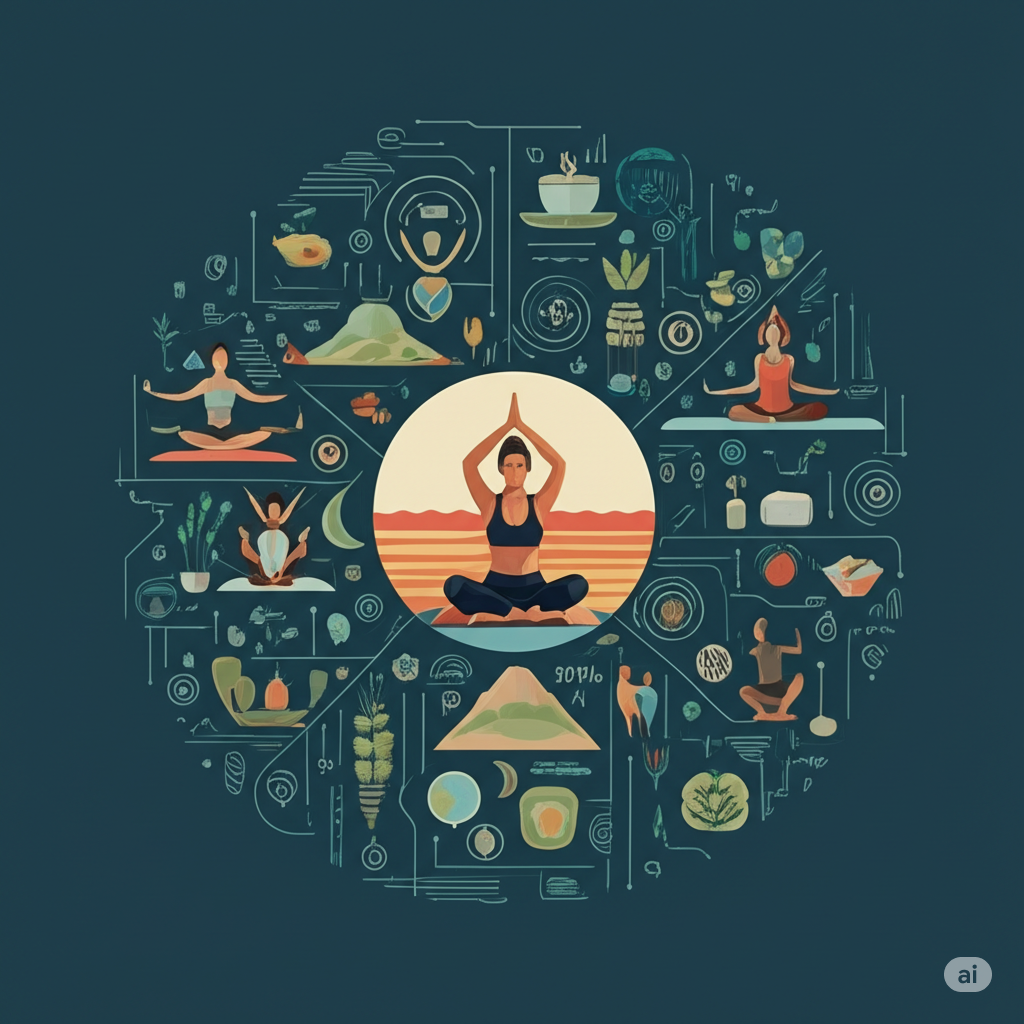We hear the word “wellness” everywhere these days. From trendy juice bars to fitness influencers, it’s become a buzzword. But beyond the marketing hype, what does “wellness” truly mean? It’s more than just the absence of illness; it’s a dynamic and holistic process of actively pursuing a state of being healthy in body, mind, and spirit, especially as the result of deliberate effort.
Think of wellness as a journey, not a destination. It’s about making conscious choices that lead to a more fulfilling and balanced life. It encompasses several interconnected dimensions, all playing a crucial role in our overall well-being. Let’s break down some key aspects:
Physical Wellness: This is often what comes to mind first. Physical wellness involves adopting healthy habits related to exercise, nutrition, sleep, and avoiding harmful substances. It’s about nourishing your body and ensuring it functions optimally. This doesn’t necessarily mean running marathons; it could be as simple as taking regular walks, eating more fruits and vegetables, and getting enough restful sleep.
Mental Wellness: Our mental health is just as important as our physical health. Mental wellness involves our emotional, psychological, and social well-being. It’s about how we think, feel, and act. It includes managing stress, building resilience, fostering positive self-esteem, and understanding and processing our emotions in a healthy way. Practices like mindfulness, meditation, and seeking therapy when needed are key components of mental wellness.
Emotional Wellness: Closely linked to mental wellness, emotional wellness focuses on our ability to understand and manage our emotions effectively. It’s about being aware of our feelings, accepting them, and expressing them in healthy ways. It also involves developing empathy and building healthy relationships.
Social Wellness: Humans are social beings, and our connections with others significantly impact our well-being. Social wellness involves building and maintaining healthy and supportive relationships. It’s about having a sense of belonging, contributing to our community, and having a strong social support system.
Spiritual Wellness: This dimension explores our sense of purpose and meaning in life. It’s about connecting with something larger than ourselves, whether through religion, nature, art, or personal values. Spiritual wellness can provide a sense of peace, direction, and inner strength.
Intellectual Wellness: This involves engaging in lifelong learning, cultivating curiosity, and expanding our knowledge and skills. Intellectual wellness keeps our minds active and engaged, fostering creativity, problem-solving abilities, and a sense of accomplishment.
Environmental Wellness: Often overlooked, environmental wellness involves our relationship with our surroundings. It’s about creating and living in environments that support our well-being, as well as being mindful of our impact on the planet. This includes things like access to clean air and water, living in safe and pleasant spaces, and engaging in sustainable practices.
Occupational Wellness: This dimension focuses on our satisfaction and fulfillment in our work or chosen profession. It’s about finding a career that aligns with our values, interests, and skills, and that provides a sense of purpose and contribution.
Ultimately, wellness is a very personal journey. What constitutes “wellness” for one person may look different for another. The key is to be mindful of all these dimensions and to make conscious choices that support your overall well-being. It’s about finding a balance that feels right for you and actively working towards a healthier, happier, and more fulfilling life.













Leave a Reply